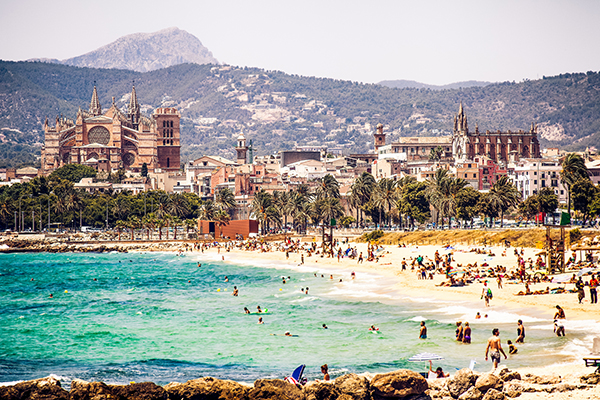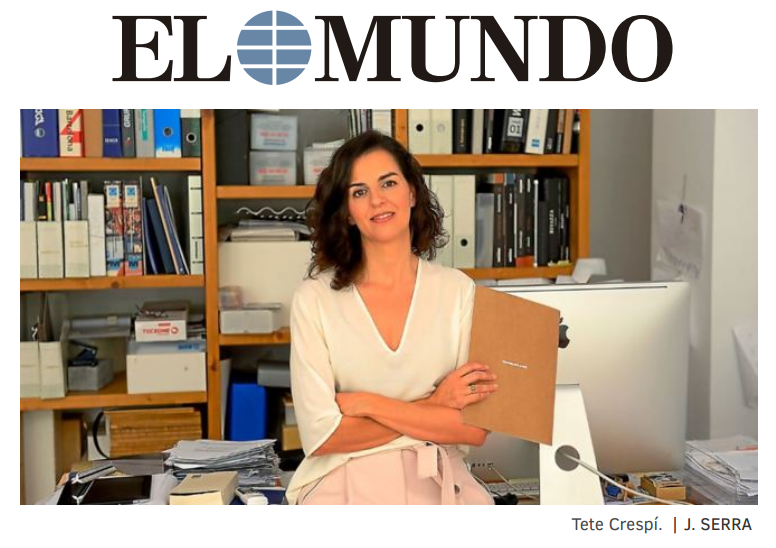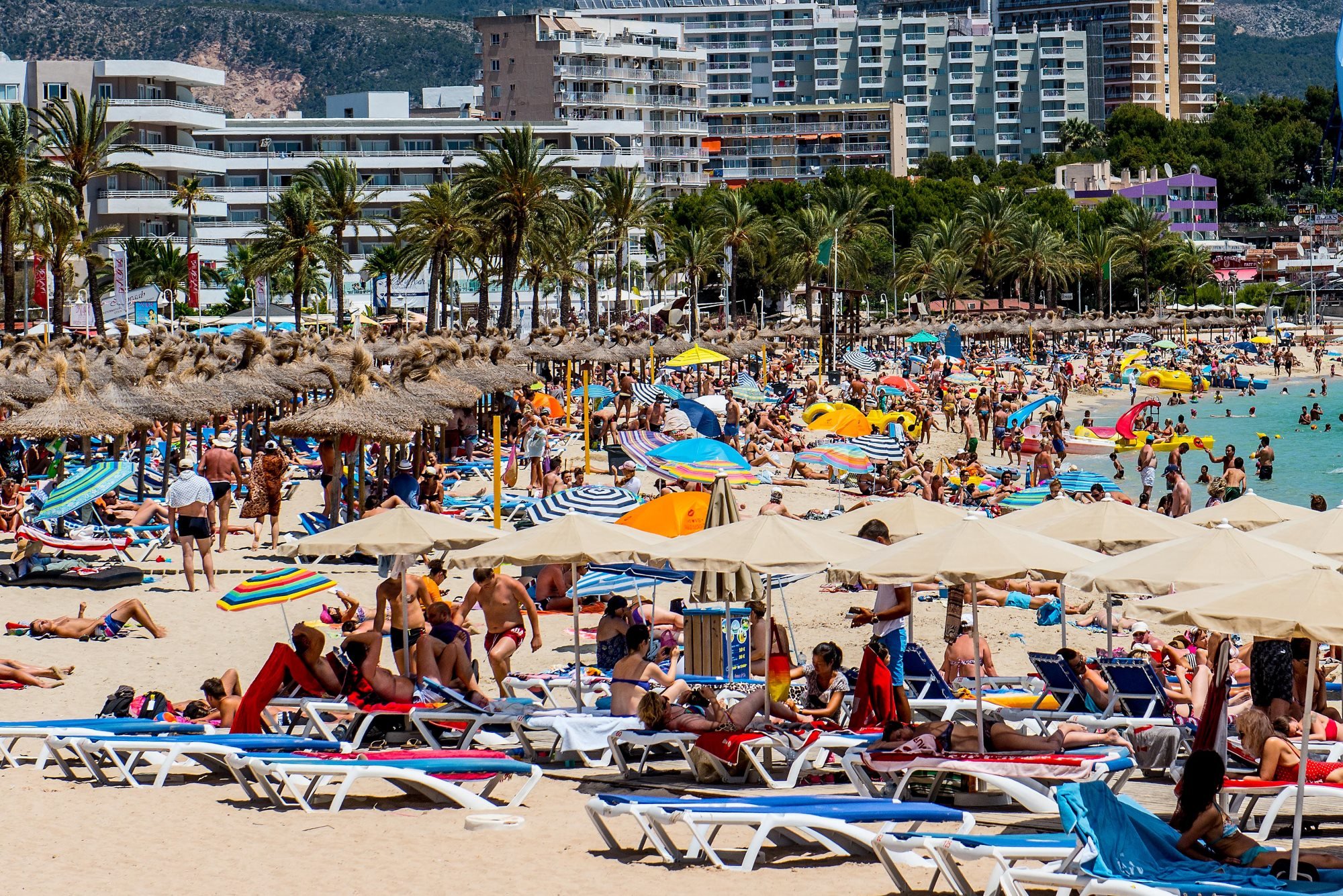Voices against the crisis - Interview with Joan Cerdà
Joan Cerdà talks about the evolution of the architect due to the current economic context and also about the situation in which the real estate sector finds itself.
THE WORLD | 15.02.2015 | NADAL SUAU
[Preliminary note: the text below is an excerpt from the interview with Joan Cerdà, partner of Monapart Palma, which was published by the daily newspaper The World on 15 February. If you want to read the original article click here here.]

Set up in the very centre of Palma, in an office that until very recently belonged to the architect Pere RabassaCerdà is enthusiastic, vocational and active. And optimistic, although he does not fail to detect quite accurately the shortcomings and needs of a sector in the midst of reconstruction.
P. You can see it from a double perspective, that of the architectural firm and that of a real estate agencyHow would you define the current economic moment, and is the upturn clear enough to be hopeful?
A.- Well, they are, in fact, two different perspectives. The profession of the architect drags along a lot of inertia, so that it is difficult for things to start as well as to stop. That is to say, when the deepest moment of the crisis began, the landing of the architects' offices was not immediate because we worked with a lot of foresight and therefore in many cases we were still closing the last works contracted. But in exchange, now the real estate sector is undoubtedly experiencing an increase in demand, while architects need even more confidence among potential clients for everything to pick up again. In any case, on the whole I do believe that we can speak of an economic moment which, represented in the form of a graph, would be flat and with a slight upward trend. [...]
P. Let's move on to your other facet, real estate. Monapart defines itself as a Postinmobiliaria agency.What do they mean by that?
A.- My partner Tete Crespí and myself have Monapart PalmaThe agency was founded in Barcelona by three people who were not from the real estate world. And it is postinmobiliaria because it was born from the ashes of the boom with the aim of offering a new paradigm within this sector. It is about doing the same thing (selling and renting housing), but in a different way. For example, we only offer homes in which we would live. And it is not a question of elitism, because our price ratio is not high standing. But we are demanding in terms of spatial quality and we want each product to have some attractive peculiarity. As for the sales process, it is very different from the classic one, to begin with because we give great importance to social networks, from Twitter to Instagram, and we are constantly renewing the website, both formally and in terms of content and possibilities. For example, the new website model is currently being tested and will be launched soon. We are trying to make it a empathetic agencywho accompanies the client throughout the entire process.
Monapart is a post-real estate company because it was born from the ashes of the boom with the aim of offering a new paradigm within this sector. It is about doing the same thing (selling and renting housing), but in a different way.
Q. And how do you combine these two professional registers, that of architect and agent?
A.- Well, we got involved in Monapart because we were attracted to real estate work but repelled by the real estate world [laughs]. That is to say, we didn't feel at all identified with the classic model of that business. In addition, we believed (and we believe) that the profession of architect can no longer be only to design, but also to promote-build, because if you don't have clients you have to make them for yourself. And if you believe that this step is possible, why not sell as well?
Q. Is this a good time to buy property in Baleares?
A.- Yes, I am sure. At least, depending on which properties in which areas. There are neighbourhoods in Palma where prices are rising, and in fact in the Balearic Islands prices are minimally on the rise as a whole. The market is intelligent and detects that the Great Adjustment is over. But there will be other homes whose prices will continue to fall because they are in absurd places, disconnected from the urban fabric, displaced. But on the whole, it is clear that prices have already adjusted, because there is a greater sense of confidence. This is very noticeable in the sector itself, which is beginning to sense a clearer horizon, albeit in the knowledge that, fortunately, it will not be the same as before.
P. You say 'fortunately' and it's true that when I've interviewed people in the real estate sector they've all said the same thing: we don't want what we had before. But do you really mean that? I mean, do you think a lesson has been learned from this crisis?
A.- I think that people's memory is short and short, and that greed will always be present. So I doubt that certain excesses will return, but I put it down to the fact that the system itself will not allow it. There will be no muscle for it, no huge capital gains, not enough credit... In any case, my scepticism about this supposed lesson learned has nothing to do with the sector, but with human nature in general. And beware, there will be many people exhausted after all that has happened, and these eight years have done a lot of sifting. It is devastating to analyse how many architecture offices have closed in Spain. And believe me: a closed office is unlikely to reopen.
The journalist Nadal Suau interviews Joan Cerdà, partner of Monapart Palma, in the newspaper El Mundo. In the interview Joan talks about the evolution of the architect due to the current economic context and the situation of the real estate sector.





